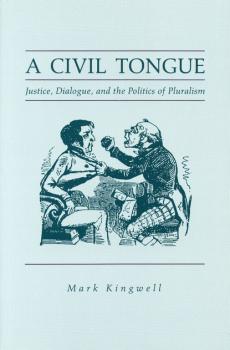ТОП просматриваемых книг сайта:
Mark Kingwell
Список книг автора Mark KingwellАннотация
Langeweile ist eine der geläufigsten menschlichen Erfahrungen, trotzdem scheint sie sich beharrlich einem vollständigen Verständnis zu entziehen. Wir alle wissen, wie es sich anfühlt, gelangweilt zu sein, doch was genau den Zustand des Gelangweiltseins auslöst, was ihn ausmacht und was aus ihm folgt, ist weit weniger klar. Ist Langeweile eine Funktion der Muße, sodass es, wie manche meinen, vor dem Zeitalter Schopenhauers so etwas wie Langeweile gar nicht gab? Oder ist die aus dem Mittelalter bekannte Sünde der Acedia – eine Art Apathie, ein Überdruss an jeder Art des Tätigseins – vielleicht ein passender Vorläufer? Stürzt uns die Langeweile in ein Wechselbad widersprüchlichen Verlangens oder konträrer Zustände oder beides? Kurz: Wenn ich mich angesichts eines gefüllten Kühlschranks darüber beklage, dass es nichts zu essen gibt, oder wenn ich in hundert Fernsehkanälen vergeblich nach etwas Gescheitem suche, wer oder was ist dann genau daran schuld?
Аннотация
This book is about a widely shared desire: the desire among citizens for a vibrant and effective social discourse of legitimation. It therefore begins with the conviction that what political philosophy can provide citizens is not further theories of the good life but instead directions for talking about how to justify the choices they make—or, in brief, "just talking." As part of the general trend away from the aridity of Kantian universalism in political philosophy, thinkers as diverse as Bruce Ackerman, Jürgen Habermas, Alasdair MacIntyre, and Richard Rorty have taken a "dialogic turn" that seeks to understand the determination of principles of justice as a cooperative task, achieved in some kind of social dialogue among real citizens. In one way or another, however, each of these different variations on the dialogic model fail to provide fully satisfactory answers, Mark Kingwell shows. Drawing on their strengths, he presents another model he calls "justice as civility," which makes original use of the popular literature on etiquette and work in sociolinguistics to develop a more adequate theory of dialogic justice.


